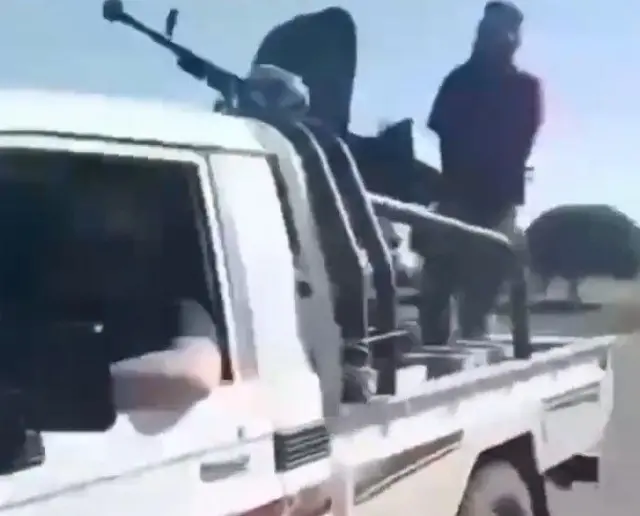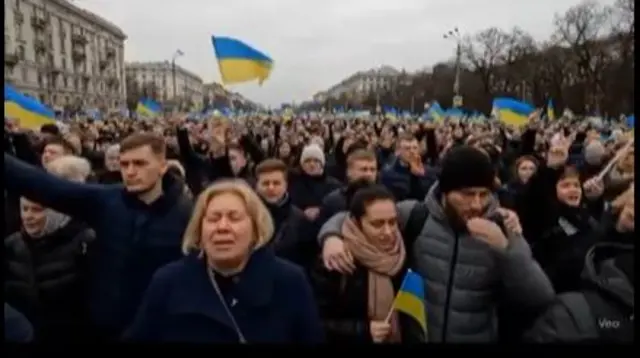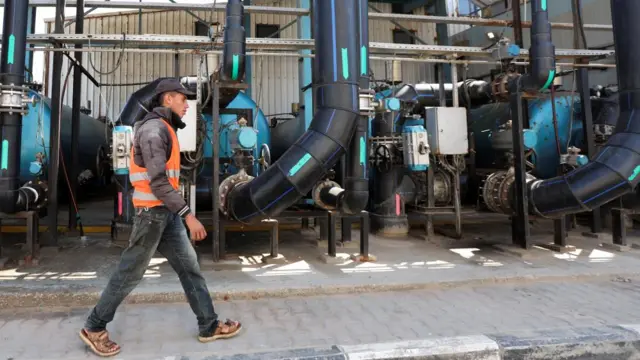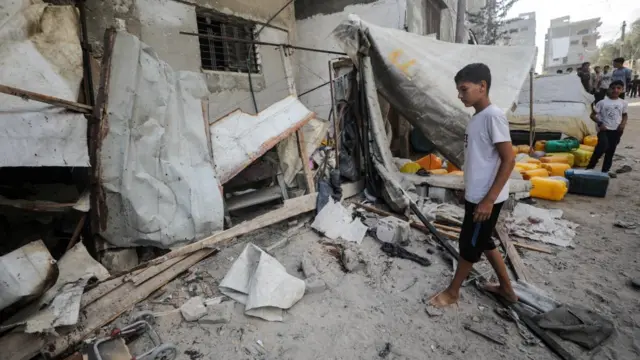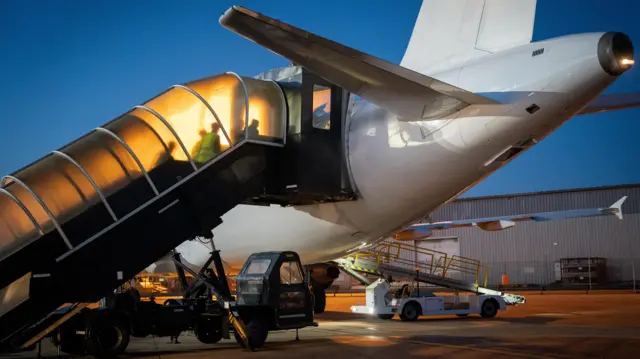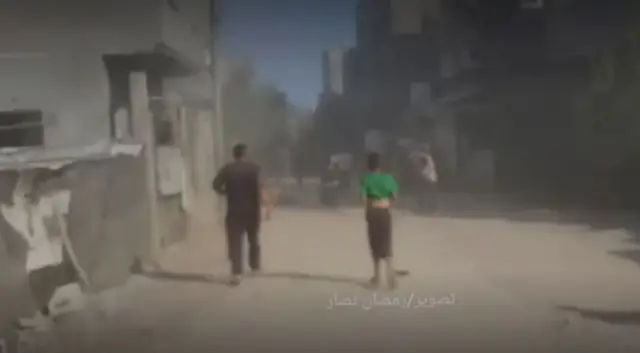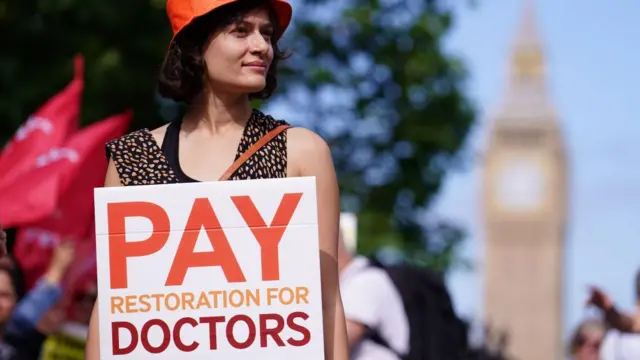Monday on BBC Verify Livepublished at 17:18 BST 14 July
 Tom Edgington
Tom Edgington
BBC Verify senior journalist
We’ll be wrapping up this live page shortly. Here’s a quick recap of the key stories we’ve covered:
- Our team fact-checked claims about the real-terms fall in pay for resident doctors
- We investigated footage of yesterday’s deadly Israeli air strike which killed people queuing for water
- And we looked into Prime Minister Sir Keir Starmer’s recent claim that the UK government had “returned” 30,000 migrants.
Into this evening, we’re expecting full details of President Donald Trump’s new US military aid package for Ukraine - and how it’s being paid for. Our BBC Verify reporter in Washington is on hand to analyse what's being supplied. There’s continuing live coverage of the story here.
In the meantime, you can find more BBC Verify content on the BBC News website.


